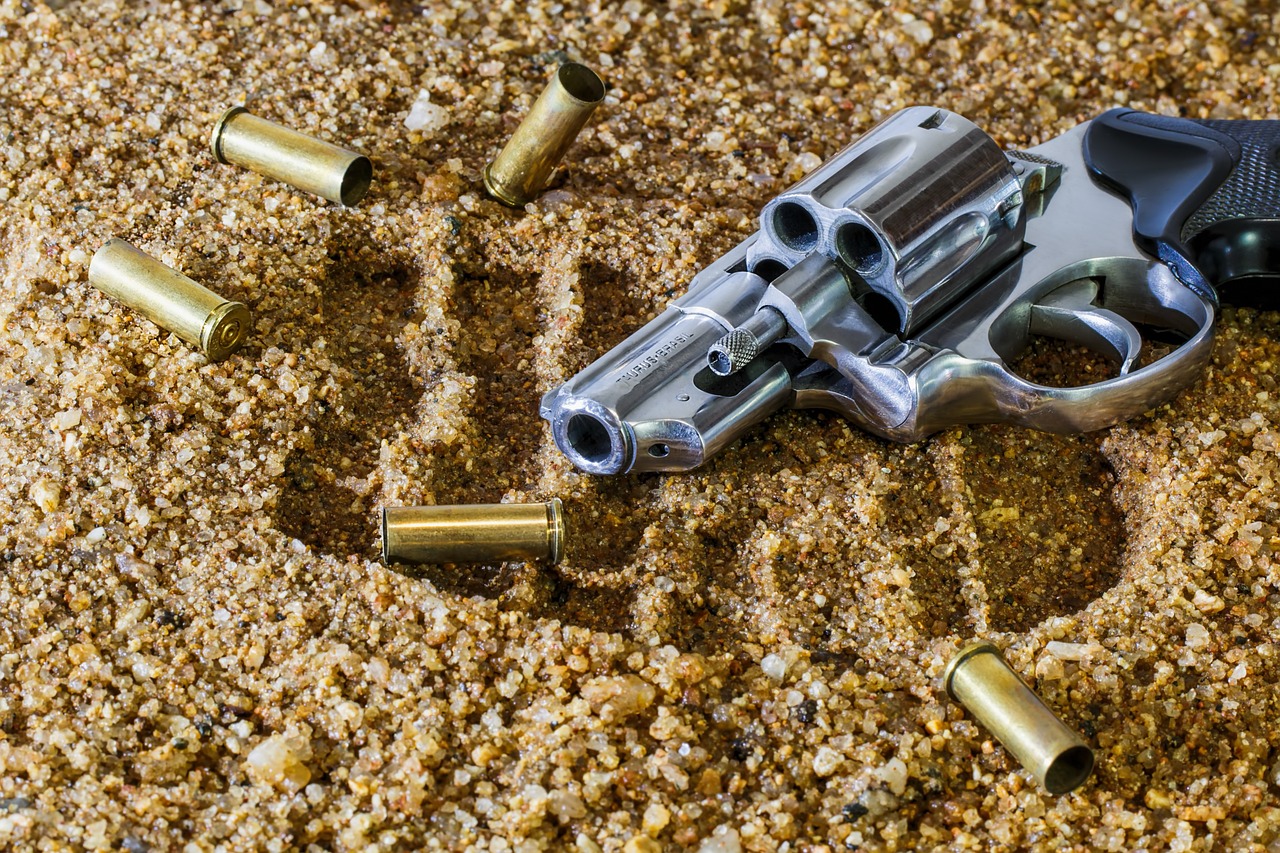Now Reading: Armed with Knowledge: The Dynamic Landscape of Weapons Charges Lawyers
-
01
Armed with Knowledge: The Dynamic Landscape of Weapons Charges Lawyers

Armed with Knowledge: The Dynamic Landscape of Weapons Charges Lawyers
The legal world is rife with complexity, and one area that exemplifies this intricacy is the field of weapons charges law. Attorneys who specialize in defending individuals facing weapons charges find themselves navigating a dynamic landscape filled with evolving laws, diverse cases, and the ever-present need for expertise. In this article, we will delve into the world of weapons charges lawyers, exploring their role, the challenges they face, and the essential skills required to excel in this demanding field.
Understanding the Role of Weapons Charges Lawyers
Weapons charges lawyers play a vital role within the broader realm of criminal defense. Their primary responsibility is to advocate for individuals accused of violating laws related to the possession, use, or trafficking of firearms and other weapons. This field encompasses a wide range of offenses, from illegal possession of firearms to more severe charges like armed robbery or assault with a deadly weapon.
Types of Weapons Charges
To comprehend the dynamic nature of this legal field, it’s essential to first understand the various types of weapons charges that attorneys may encounter. These charges can be broadly categorized into the following:
Illegal Possession
Often, individuals find themselves facing weapons charges simply due to unlawful possession of firearms or other restricted weapons. This can result from not having the required permits or possessing firearms with altered serial numbers.
Assault with a Deadly Weapon
This charge is applied when someone uses a weapon, such as a gun or knife, to threaten or harm another person.
Armed Robbery
Armed robbery involves using a weapon to commit theft or robbery, making it a severe criminal offense.
Gun Trafficking
Those engaged in the illegal sale, transport, or distribution of firearms may face charges related to gun trafficking.
Weapons Enhancements
In many jurisdictions, possessing a weapon during the commission of another crime can lead to enhanced penalties. Weapons charges lawyers often deal with cases where their clients are charged with additional offenses due to the presence of a weapon.
Domestic Violence with Weapons
Cases involving weapons and domestic violence are particularly complex and sensitive. Lawyers must navigate the intricacies of both criminal and family law.
The Challenges Faced by Weapons Charges Lawyers
The world of weapons charges law is marked by several unique challenges, making it one of the most demanding areas of legal practice.
Evolving Laws and Regulations
One of the foremost challenges that weapons charges lawyers encounter is the continuously evolving landscape of laws and regulations surrounding firearms and weapons. Each jurisdiction has its own set of rules, and these can change frequently due to legislative updates or court decisions. Staying abreast of these changes is crucial for attorneys to provide effective representation to their clients.
Complex Legal Frameworks
Weapons charges often intersect with other areas of criminal law, such as self-defense, search and seizure, and even mental health issues. Navigating these complex legal frameworks requires a deep understanding of not only weapons laws but also related legal doctrines and precedents.
Evidence and Forensics
In weapons-related cases, evidence and forensics play a significant role. Lawyers must be well-versed in analyzing ballistic and forensic evidence to build a compelling defense. Understanding the nuances of firearm technology and the reliability of such evidence is paramount.
Negotiation Skills
Many weapons charges lawyers spend a substantial amount of their time negotiating with prosecutors to secure favorable plea deals for their clients. The ability to effectively negotiate and advocate for reduced charges or alternative sentencing options is a vital skill in this field.
Emotional and Sensitive Cases
Weapons charges often involve high-stakes, emotionally charged situations, such as cases related to domestic violence. Lawyers must navigate these sensitive cases with empathy and a deep understanding of the personal and legal complexities involved.
Essential Skills for Weapons Charges Lawyers
To excel in the field of weapons charges law, attorneys must possess a unique set of skills and qualities.
Legal Expertise
A deep and up-to-date understanding of weapons laws, criminal procedures, and related legal areas is non-negotiable. Lawyers in this field must be able to interpret complex statutes and regulations with precision.
Research Skills
Given the ever-changing legal landscape, weapons charges lawyers must be adept researchers. They need to constantly investigate and analyze relevant case law, statutes, and legal precedents to develop effective defense strategies.
Analytical Thinking
The ability to dissect complex cases, identify weaknesses in the prosecution’s arguments, and construct a compelling defense strategy is crucial for success in this field.
Effective Communication
Weapons charges lawyers must be skilled communicators. They need to convey complex legal concepts to clients in a clear and understandable manner, and they must also advocate persuasively in court.
Negotiation Skills
Successful negotiation with prosecutors and opposing counsel can lead to more favorable outcomes for clients. Lawyers must be adept at finding common ground while protecting their clients’ interests.
Empathy and Compassion
Given the often emotionally charged nature of weapons charges cases, lawyers must approach their work with empathy and compassion. They need to understand the human element of their clients’ situations while providing unwavering legal support.
Conclusion
The world of weapons charges lawyers is one of constant adaptation and complexity. These legal professionals play a crucial role in defending the rights of individuals accused of weapons-related offenses, facing unique challenges and demands along the way. To thrive in this dynamic landscape, weapons charges lawyers must possess a diverse skill set that combines legal expertise, research acumen, analytical thinking, effective communication, negotiation skills, and a deep sense of empathy. As laws and regulations continue to evolve, these attorneys remain armed with knowledge, ensuring that justice is served in even the most intricate of cases.










